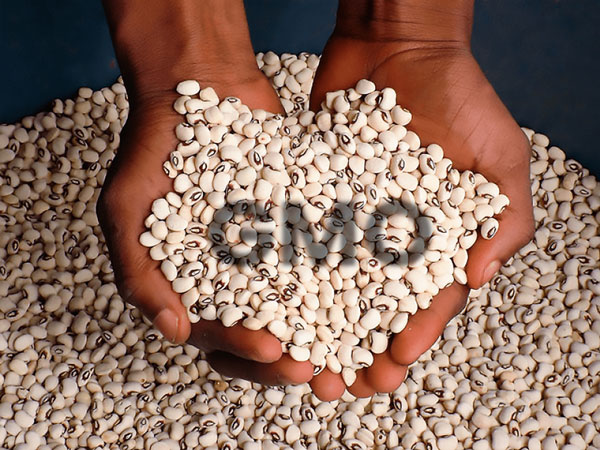
Ghana is the latest African nation to commit to GM in an attempt to unlock economic benefits from agriculture.
SPECIAL REPORT | BIRD AGENCY | The designation of Ghana as the International Atomic Energy Agency’s (IAEA) collaborating center for Africa, focusing on plant breeding and associated technologies for food and nutrition, is being seen as a pivotal moment in the application of genetic modification in Africa.
In a recent press statement, the IAEA announced its collaboration with the Biotechnology and Nuclear Agriculture Research Institute (BNARI) of the Ghana Atomic Energy Commission, in a four-year commitment “to promote research and development on mutation breeding in West and sub-Saharan Africa.”
Najat Mokhtar, IAEA Deputy Director General and Head of the Department of Nuclear Applications termed mutation breeding a powerful tool to address the global challenge of food security.
“It enables us to develop food crops with increased yields, improved nutritional quality, and enhanced resilience in the face of climate change. Through our closer collaboration with BNARI, we aim to share expertise and build capacities for deploying this safe and highly effective technique across a wider geographical region,” she explains.
BNARI is set to become Africa’s first IAEA Collaborating Centre in the field of plant breeding and genetics, one of only six such centres globally, and was chosen for its strategic location and expertise in radiation-induced mutation.
Ghana has, in recent times, been at the forefront of embracing genetic modification technology to enhance crop and plant species. The nation is poised to introduce its first genetically modified cowpea, developed by the Savannah Agriculture Research Institute (SARI), into the Ghanaian market this year.
Projections indicate that this modified cowpea will substantially increase yields – by nearly 300 percent. Jerry Nboyine, a senior research fellow at SARI highlighted in an interview on GhanaWeb that the modified variety does not require the use of insecticides, in contrast to non-GMO cowpeas.
Ghana is one of a small but growing number of African countries that have embraced genetic modification technology to bolster agricultural productivity and resilience. The International Service for the Acquisition of Agri-Biotech Applications (ISAAA) puts the number at three in 2016, rising to over ten in 2022.
Kenya last year lifted a decade-long ban on genetically modified crops, now allowing their cultivation, research, and the importation of certified GMO crops and animal feeds.
South Africa, Nigeria, Malawi, Sudan, Uganda, Burkina Faso, Egypt, and Sudan have all moved to adopt the technology, with many conducting field trials.
Nigerian scholar Ademola Adenle delved into the topic in an analysis published by ‘The Conversation’ in June, arguing that GM crops offer a potent solution to Africa’s pressing hunger crisis.
“Based on my research in this area, I believe that agricultural innovations such as GM crops or organisms have the potential to address food security in Africa,” he explained.
Africa’s food crisis cannot be understated, and it extends beyond hunger, encompassing nutrition gaps that have been exacerbated by erratic climate conditions resulting from local and global human-induced climate change, and logistics challenges.
The UNFAO’s 2023 State of Food Security and Nutrition report reveals a distressing increase in global hunger, with over 122 million more people facing hunger since 2019. A substantial portion of this growth is occurring in Africa, where nearly 20% of the population faces hunger.
Moreover, the prevalence of undernourishment (PoU) in Africa rose from 19.4 percent in 2021 to 19.7 percent in 2022, primarily due to increases in Northern and Southern Africa.
South Africa and Sudan are already seen as frontrunners in applying and using GM technology to accelerate crop production, mostly maize in South Africa and cotton in Sudan. South Africa has seen a major increase in maize production, even in lower rainfall years, regularly resulting in a surplus, which earns the country foreign exchange when exported.
“Research has shown 65% of the gain came from higher yield and production and 35% from lower costs,” Adenle explains, highlighting the economic value of planting GM crops.
The Rainbow Nation has been growing commercial genetically modified maize since 1997. A 2021 study published in ScienceDirect, titled, ‘Economic and ecosystem impacts of GM maize in South Africa’ revealed GM maize had yielded welfare benefits surpassing $694 million between 2001 and 2018.
“We began planting GMO maize seeds in the 2001/2002 season. Before their introduction, average maize yields in South Africa were about 2.4 tonnes per hectare. This has increased to an average of 6.3 tonnes per hectare in the 2022/23 production season,” Wandile Sihlobo, a South African agricultural economist, explained.
With extreme weather patterns disrupting agricultural patterns, recent genetic modifications have focused on indigenous crops such as cassava and sweet potato, which are more climate change-resistant.
Several other agencies across Africa have been actively advancing these technological solutions. The Pan-African Bean Research Alliance (PABRA) is a prime example, which has revealed in the past week that it has researched, developed, and distributed over 650 new bean varieties in 32 countries.
PABRA’s efforts have led to a 30% increase in income for more than five million households across ten countries, and farmers who cultivate, consume, and sell its beans are 6% more likely to achieve food security and 6% less likely to live in poverty.
As Adenle explained, to increase yields countries should increase investment in biotech research, train scientists, involve local experts in decision-making, foster government collaboration, and use science-based communication to raise awareness of both the benefits and concerns around GM crops.
*****
SOURCE; Bonface Orucho, bird story agency
 The Independent Uganda: You get the Truth we Pay the Price
The Independent Uganda: You get the Truth we Pay the Price




